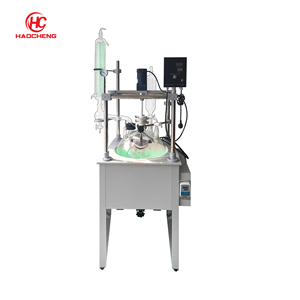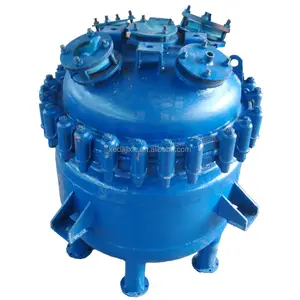(419 products available)































































































































































































































A bubble reactor is a type of chemical reactor that utilizes gas bubbles to facilitate various chemical reactions. These reactors are widely used in industries such as pharmaceuticals, petrochemicals, and wastewater treatment due to their efficient mass transfer capabilities. The design of a bubble reactor plays a crucial role in determining its performance and efficiency.
When it comes to the design of bubble reactors, several key factors need to be taken into account. The size and shape of the reactor vessel, the distribution of gas spargers, the type of impellers, and the control systems are all essential elements that influence the overall efficiency of the reactor. Additionally, the material of construction must be carefully selected to withstand the corrosive nature of many chemical processes.
In terms of technical specifications, bubble reactors vary in size from small laboratory-scale units to large industrial reactors capable of handling significant volumes of reactants. The gas flow rate, pressure, temperature control, and residence time are critical parameters that need to be carefully controlled to ensure optimal performance. Additionally, the choice of materials for the reactor construction must be compatible with the chemicals being processed.
The use of bubble reactors offers several advantages in chemical processes. One of the key benefits is the enhanced mass transfer between the gas and liquid phases, leading to faster reaction rates and improved yields. The ability to precisely control the gas flow and distribution also allows for better process optimization and reduced energy consumption. Furthermore, bubble reactors are versatile and can be adapted for various types of reactions.
Bubble reactors find extensive applications in a wide range of industries, including the production of fine chemicals, pharmaceuticals, and specialty materials. In the pharmaceutical sector, bubble reactors are used for processes such as hydrogenation, oxidation, and chlorination. In the petrochemical industry, these reactors are employed for gas-liquid reactions and hydroprocessing. Additionally, bubble reactors play a crucial role in environmental engineering for wastewater treatment.
When selecting a bubble reactor for your business, it is essential to consider factors such as the type of reactions to be carried out, the scale of operations, and the required process conditions. Consulting with experts in reactor design and technology can help you determine the most suitable reactor configuration for your specific application. It is also important to ensure that the chosen reactor meets industry standards and regulatory requirements.
Proper maintenance of bubble reactors is crucial to ensure their long-term performance and reliability. Regular inspection of components such as gas spargers, impellers, and instrumentation is necessary to identify and address any issues promptly. Cleaning and servicing of the reactor vessel, control systems, and safety devices should be carried out according to the manufacturer's guidelines. Implementing a proactive maintenance schedule can help prevent costly downtime and ensure uninterrupted operation.
By incorporating bubble reactors into your industrial processes, you can significantly enhance process efficiency, productivity, and product quality. The precise control over reaction conditions, improved mass transfer rates, and versatility of bubble reactors make them indispensable tools in modern chemical engineering. Investing in high-quality bubble reactors tailored to your specific requirements can yield substantial benefits in terms of cost savings and process optimization.
The field of bubble reactor technology is continuously evolving, with ongoing research focused on enhancing reactor design, materials, and process control capabilities. Advancements in computational modeling, automation, and artificial intelligence are expected to further improve the performance and efficiency of bubble reactors. As industries strive for sustainability and cleaner production methods, bubble reactors are likely to play a vital role in achieving these goals through more environmentally friendly and energy-efficient processes.
Collaboration among manufacturers, researchers, and end-users is essential for driving innovation in the bubble reactor industry. By sharing knowledge, expertise, and best practices, stakeholders can collectively work towards developing cutting-edge technologies and solutions that address the evolving needs of various sectors. Embracing a culture of innovation and openness to new ideas will pave the way for the continued advancement of bubble reactor technology and its applications across diverse industries.